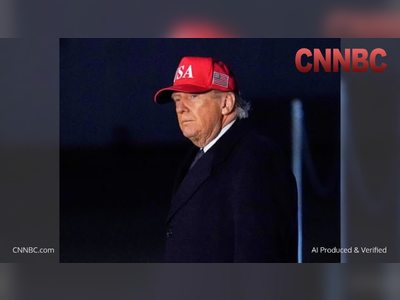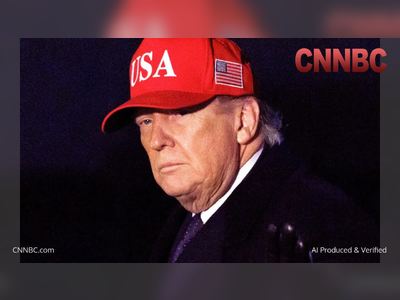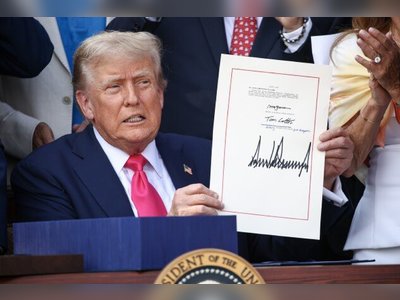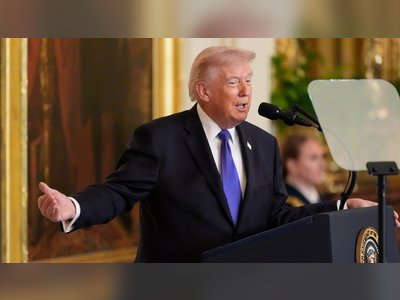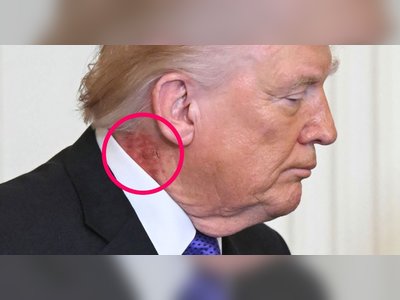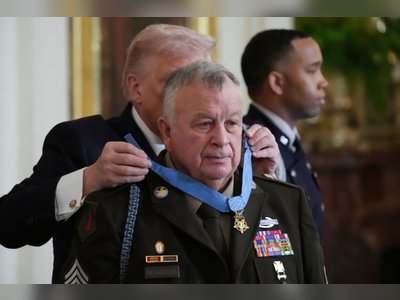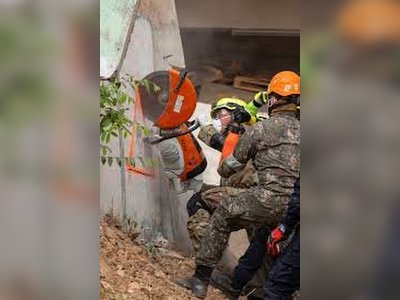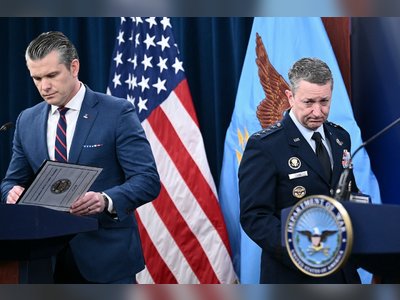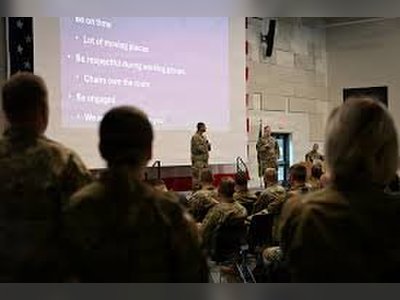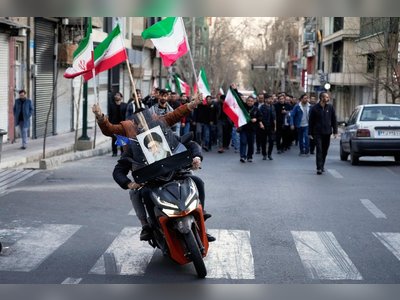
Trump and Putin Discuss Ceasefire During In-Depth Phone Call
U.S. President Donald Trump and Russian President Vladimir Putin outline ceasefire initiatives but diverge on key issues.
In a significant phone call on Wednesday, U.S. President Donald Trump and Russian President Vladimir Putin engaged in discussions concerning a potential ceasefire in Ukraine, humanitarian aid, and an unexpected proposal regarding ice hockey matches.
The dialogue lasted over 90 minutes and covered various topics related to ongoing conflicts and bilateral relations.
One primary outcome of this call was an agreement to halt attacks on Ukraine's energy infrastructure for a duration of 30 days.
According to a Kremlin statement, President Putin responded favorably to this initiative, issuing orders to the Russian military to cease strikes on energy facilities.
Additionally, both leaders agreed to initiate dialogue on a maritime ceasefire in the Black Sea, with the aim of eventually reaching a comprehensive ceasefire.
The White House indicated that these talks would commence immediately in the Middle East.
However, President Putin did not endorse a broader U.S.-backed 30-day ceasefire that Ukraine had expressed willingness to accept.
The Kremlin noted that Putin raised important concerns, particularly regarding the potential use of a ceasefire by Ukraine to regroup and rearm its forces.
During the call, discussions also touched on enhancing U.S.-Russia relations, with both leaders expressing interest in normalizing their diplomatic ties.
The White House described a future of improved bilateral relations as having substantial economic benefits and offering potential for geopolitical stability.
Contrastingly, President Putin articulated expectations for a complete cessation of military aid and intelligence support from foreign nations to Ukraine, positioning this as a critical condition for any prospective ceasefire.
Putin also emphasized the importance of halting what he referred to as the forced mobilization and rearming of Ukrainian soldiers.
The two leaders reached a preliminary agreement concerning a prisoner exchange, with each side set to release 175 detainees.
Additionally, Russia has committed to returning 23 wounded Ukrainian soldiers as an act of goodwill.
In a lighter moment, the Kremlin reported that Trump endorsed Putin's suggestion to arrange ice hockey matches between teams from the U.S. and Russia.
However, several notable issues were not addressed during the call, namely the full ceasefire Trump had sought and potential territorial concessions.
Speculation regarding these concessions has raised concerns among Ukrainian officials and allies, as President Trump had hinted at the possibility of including territorial adjustments in future peace negotiations.
Ukrainian President Volodymyr Zelenskyy has rejected any discussions that imply compromising Ukraine's sovereignty and territorial integrity, stressing that Russian claims on seized territories cannot be tolerated.
Following the call, President Zelenskyy voiced alarm over a series of missile strikes on civilian infrastructure in Ukraine, asserting that Russia had effectively dismissed proposals for a ceasefire.
On the same day, air raid sirens echoed across various regions, including reports of a hospital being struck in Sumy.
European Commission President Ursula von der Leyen highlighted a concerning escalation in Russia’s military production capabilities, indicating preparations for sustained confrontation with European democracies.
In the lead-up to this call, UK Prime Minister Keir Starmer reiterated the need for united efforts to support Ukraine in achieving a just and lasting peace.
As the situation evolves, it remains evident that substantial differences between U.S. and Russian positions persist, complicating the path towards lasting peace in the region.
The dialogue lasted over 90 minutes and covered various topics related to ongoing conflicts and bilateral relations.
One primary outcome of this call was an agreement to halt attacks on Ukraine's energy infrastructure for a duration of 30 days.
According to a Kremlin statement, President Putin responded favorably to this initiative, issuing orders to the Russian military to cease strikes on energy facilities.
Additionally, both leaders agreed to initiate dialogue on a maritime ceasefire in the Black Sea, with the aim of eventually reaching a comprehensive ceasefire.
The White House indicated that these talks would commence immediately in the Middle East.
However, President Putin did not endorse a broader U.S.-backed 30-day ceasefire that Ukraine had expressed willingness to accept.
The Kremlin noted that Putin raised important concerns, particularly regarding the potential use of a ceasefire by Ukraine to regroup and rearm its forces.
During the call, discussions also touched on enhancing U.S.-Russia relations, with both leaders expressing interest in normalizing their diplomatic ties.
The White House described a future of improved bilateral relations as having substantial economic benefits and offering potential for geopolitical stability.
Contrastingly, President Putin articulated expectations for a complete cessation of military aid and intelligence support from foreign nations to Ukraine, positioning this as a critical condition for any prospective ceasefire.
Putin also emphasized the importance of halting what he referred to as the forced mobilization and rearming of Ukrainian soldiers.
The two leaders reached a preliminary agreement concerning a prisoner exchange, with each side set to release 175 detainees.
Additionally, Russia has committed to returning 23 wounded Ukrainian soldiers as an act of goodwill.
In a lighter moment, the Kremlin reported that Trump endorsed Putin's suggestion to arrange ice hockey matches between teams from the U.S. and Russia.
However, several notable issues were not addressed during the call, namely the full ceasefire Trump had sought and potential territorial concessions.
Speculation regarding these concessions has raised concerns among Ukrainian officials and allies, as President Trump had hinted at the possibility of including territorial adjustments in future peace negotiations.
Ukrainian President Volodymyr Zelenskyy has rejected any discussions that imply compromising Ukraine's sovereignty and territorial integrity, stressing that Russian claims on seized territories cannot be tolerated.
Following the call, President Zelenskyy voiced alarm over a series of missile strikes on civilian infrastructure in Ukraine, asserting that Russia had effectively dismissed proposals for a ceasefire.
On the same day, air raid sirens echoed across various regions, including reports of a hospital being struck in Sumy.
European Commission President Ursula von der Leyen highlighted a concerning escalation in Russia’s military production capabilities, indicating preparations for sustained confrontation with European democracies.
In the lead-up to this call, UK Prime Minister Keir Starmer reiterated the need for united efforts to support Ukraine in achieving a just and lasting peace.
As the situation evolves, it remains evident that substantial differences between U.S. and Russian positions persist, complicating the path towards lasting peace in the region.


